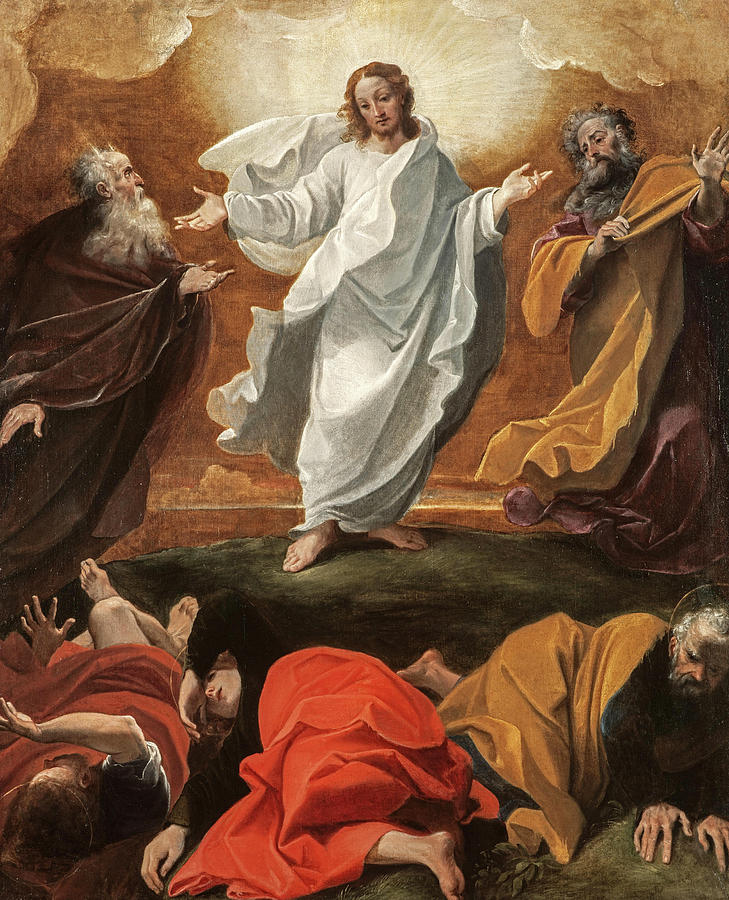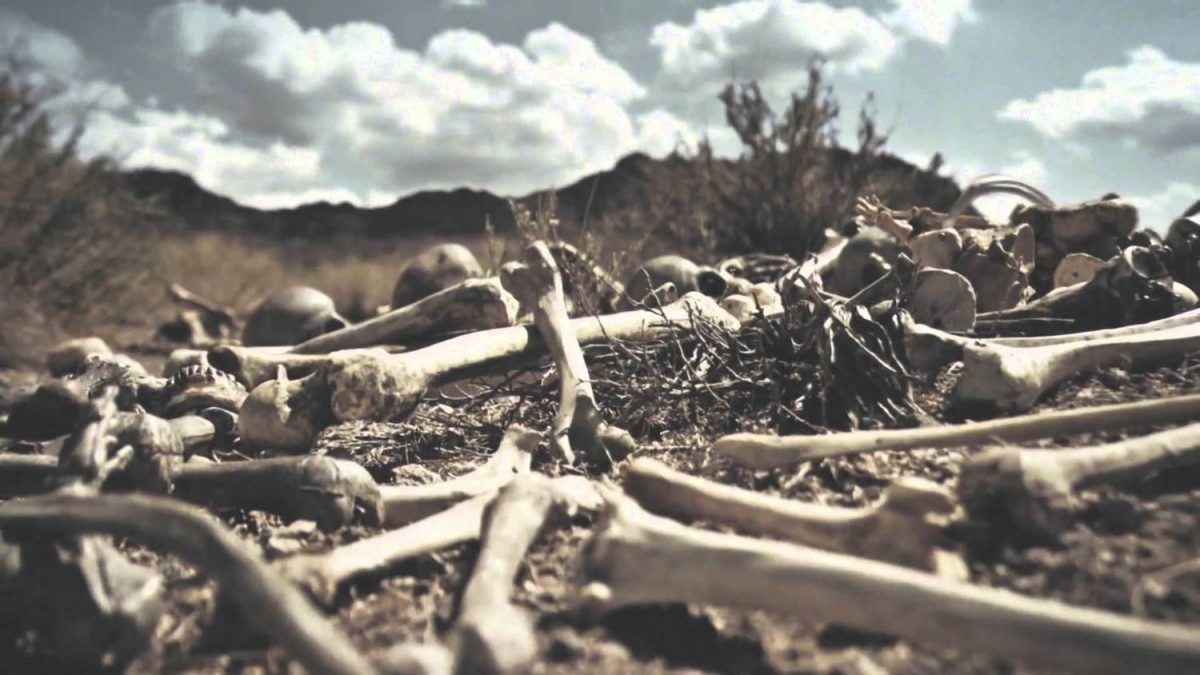Background Passages: Philippians 4:6-9; John 14:26-27
Sarah Winchester began the construction of her new home in San Jose in 1884, shortly after the death of her husband William, the firearms magnate. For 38 years until her death in 1922, the 22,000 square foot home was under constant construction or renovation.
There are more than 10,000 windows and 160 rooms in the Winchester Mansion. The result of this haphazard design is a maze-like structure with doorways and stairways that lead nowhere.
Teams of carpenters, masons and other trades were employed around the clock to address Sarah’s eccentric ideas. The design mattered less than the need to keep building. Sarah, it seems, struggled with her husband’s life work. She believed that she and her home would be haunted by the ghosts of those killed by her husband’s rifles unless he kept building her house.
It’s estimated that Sarah spent $70 million largely on pointless construction, all in a desperate search for peace that never came.
The world seeks peace today in pursuits just as fruitless as the one attempted by Sarah. Pursuing such paths will never bring peace.
We know there exists a difference in peace as viewed by the world and peace that comes from God. The world speaks of absence of conflict, calm, harmony, and happiness. Humanity’s quest for peace seems always just out of reach. Those who understand the term at a spiritual level acknowledge that God is the only true source of peace.
In the Old Testament, peace seems to be the greatest good that men could wish for each other. Ancient greetings reflect this. Even Judah’s enemy Nebuchadnezzar wrote, “Unto all people, nations and languages, that dwell in all the earth, peace be multiplied to you.” (Daniel 4:1)
Jewish greetings always wished peace. The Hebrew word translated as peace is a familiar term. It is shalom. It means completeness, soundness and welfare. Its root means to make whole or complete. Having shalom meant being in a state of wholeness or completeness, lacking nothing of importance.
The New Testament form of the word for peace is eirene (i-ray’-nay). It means unity, being one, quietness and rest. Its root means to tie together as a whole. It speaks to reconciliation, to come back together. To be complete.
So, God’s peace will always be different from peace sought by the world. Biblical peace speaks to a restored relationship with God through Christ Jesus. It is a state of wholeness and completeness experienced by those who are living in right relationship with God.
So, at the eternal level, peace with God requires a relationship with him. The path to peace begins with our declaration that Jesus is Lord of our lives…that we have put our faith and trust in him and him alone.
I don’t know about you, but it’s rarely that simple. I put my faith and trust in Christ as a nine-year-old boy who had not known the deepest struggles of life and faith that come from life experiences.
So, on a practical level, how do we find the peace of God amid the turmoil that comes as we live each day? I find some answers, I think, in Paul’s letter to the Philippian church.
“Don’t worry about anything; instead pray about everything. Tell God what you need and thank him for all he has done. Then, you will experience God’s peace, which exceeds anything we can understand. His peace will guard your hearts and minds as you live in Christ Jesus. (Philippians 4:6-7)
Don’t worry. Pray. Pray about everything. Now, I’ve never really subscribed to the idea that God cares which toothpaste I use. I supposed that there might be a specific point and time where my toothpaste choice might matter to the point where I make that a matter of prayer, but generally, I’m not sure God cares.
I think Paul says the path to peace begins in conversation with the father about the things we need…really need…in life. And, he adds, that a great starting point in that process begins by thanking him for all he has done for us in the past. The brightest light in the darkness of life is not the light at the end of the tunnel, but the light shining from behind us…where hindsight is 20/20…the light that shines on the path I’ve already traveled. The one that illuminates the footsteps of the Father walking beside us through those difficult times.
Paul chooses his words carefully, writing in ways that make connections with his first century readers. Philippi was situated near the coast of Greece. As such, it was a sentry city, of sorts, for the inland areas of the region. Since many of the residents of Philippi were retired Roman soldiers, they understood the danger of attack.
As a result, a sentry worked throughout the night in Philippi…24/7. While the people slept, the sentry, the phulasso, kept watch for enemy soldiers, thieves and wild animals. While the phulasso was on guard, the people could sleep in peaceful slumber.
Paul used this imagery to talk about a peace beyond our understanding. Paul says talking to God about what troubles us is a sure way of finding a peace we cannot easily comprehend. A peace that protects or guards (like a phulasso will guard) our hearts and minds from dredging up the past we cannot change and the worst future we can imagine. A peace that keeps us from believing that our mansion is haunted by our past and that we must keep building a stairway to nowhere. A peace that comes only as we live in Christ Jesus.
So, how do we live in Christ Jesus?
And now, dear brothers and sisters, one final thing. Fix your thoughts on what is true, and honorable, and right, and pure, and lovely and admirable. Think about things that are excellent and worthy of praise. Keep putting into practice all you learned and received from me—everything you heard from me and saw me doing. Then, the God of peace will be with you.” (Philippians 4:8-9)
Martin Luther once said, “While you cannot prevent birds from flying over your head, you can prevent them from building nests in your hair.”
Our minds are constantly churning. Left to our own imaginations, it’s easy to get fixated on something that causes us anxiety and worry. It is easy to let our thoughts center on guilt, anger, pain, uncertainty, loss, worry, hurt, danger and a host of other negative things. Paul knew how easy it was to fall into this trap…how easy it is to let the birds build a nest in our hair.
Rather than allow the negativity to set in, Paul said to “fix your thoughts…” focus intently on…to meditate…to dwell…on the thoughts of Christ. He lists a collection of filters through which all our thoughts must run.
Dwell on what is true, honorable, right, pure, lovely, and admirable. Meditate on the excellent things of life and things that are worthy of praise. We must run our thoughts through these traits. If any thought that enters our mind does not pass the test, we should reject it. We are to make our thoughts obedient to Christ.
Paul lived his life in obedience to Christ. The things he said and did, the way he chose to live, the things he taught…all of these things were built upon the model of Christ, revealing what Christ taught him that he passed on to the Philippians. He encouraged them to focus on the things of Christ and put into practice his teachings…to live a Christlike life.
Here’s where I think the rubber meets the road.
Jesus’ death and resurrection reconciled those who trust in him to God. Being in right relationship with him puts us on the path to wholeness and completeness. The difficulties of life pull us every day in the opposite direction. The worry and anxiety that creeps in at these times can be set aside by talking with the one who loved us enough to die for our sins.
When we can talk to him and recall all that he has done to carry us through difficult times in our lives, we can experience his peace…that sense of connection and completeness that only comes when we are in close contact with our father. It is this peace that protect us from the onslaught of thoughts that spiral into the depths of despair and desperation. It is peace and wholeness that comes only through a life of focused discipleship.
I don’t know if Mark Twain was a Christian. Based on his writings, he was put off by the lack of practice in what was preached.
A wealthy businessman from Boston with a reputation for ruthlessness and unethical behavior once told Twain that his dream was to visit the Holy Land before he died. His desire was to climb Mount Sinai with his Bible and read the 10 Commandments.
“I have a better idea,” Twain responded with his typical wit. “Why don’t you stay in Boston and keep them.”
Twain has a point. We tend to think we’ll find peace in some great mountaintop experience rather than daily obedience.
So, we are to focus on what we have been taught in scripture about living as Christ lived. Following his example. Passing all our thoughts through the life of Christ. Discarding what is undesirable and obeying his teachings. It is in that obedience that we find wholeness. Completeness. Peace.
Such behavior and thinking comes with a promise not only of the peace that protects and guards our thoughts, but with the presence of the comforting Father.
Look at the past phrase of Paul’s message in verse 9.
“Then, the God of peace will be with you.”
I think I always read that as “God’s peace be with you,” but that’s not what he says here. Paul already told us that we can have the peace that protects and guards when we talk to God. Now, he’s telling us that the God who is peace, the author of peace and reconciliation, will be with you. His presence in our lives brings peace.
In their most troubled time in the upper room listening as Jesus explained his imminent death on the cross, the disciples heard Jesus make this promise.
“All I have spoken while still with you. But the Counselor, the Holy spirit, whom the Father will send in my name, will teach you all things and will remind you of everything I have said to you. Peace I leave with you; my peace I give you. I do not give to you as the world gives. Do not let your hearts be troubled; do not be afraid.” (John 14:26-27)
It is impossible for us to understand fully in this present world with all its struggles the complete peace that comes only from God. The comforting thing to me is that God sent the Holy Spirit to those who believe as a constant reminder of his teachings and the daily presence of the God of peace.
I built my fair share of stairways and doorways that lead nowhere as I struggled with the life experiences I faced. When I lay those struggles at the feet of Christ and talk to him about my needs, peace comes. That sense of connection and completeness follows. When I can turn aside those negative thoughts and focus instead on what it means to live a Christlike life, I can experience and feel the presence of the God of peace.
“Do not let your hearts be troubled. Do not be afraid.”
Shalom.








